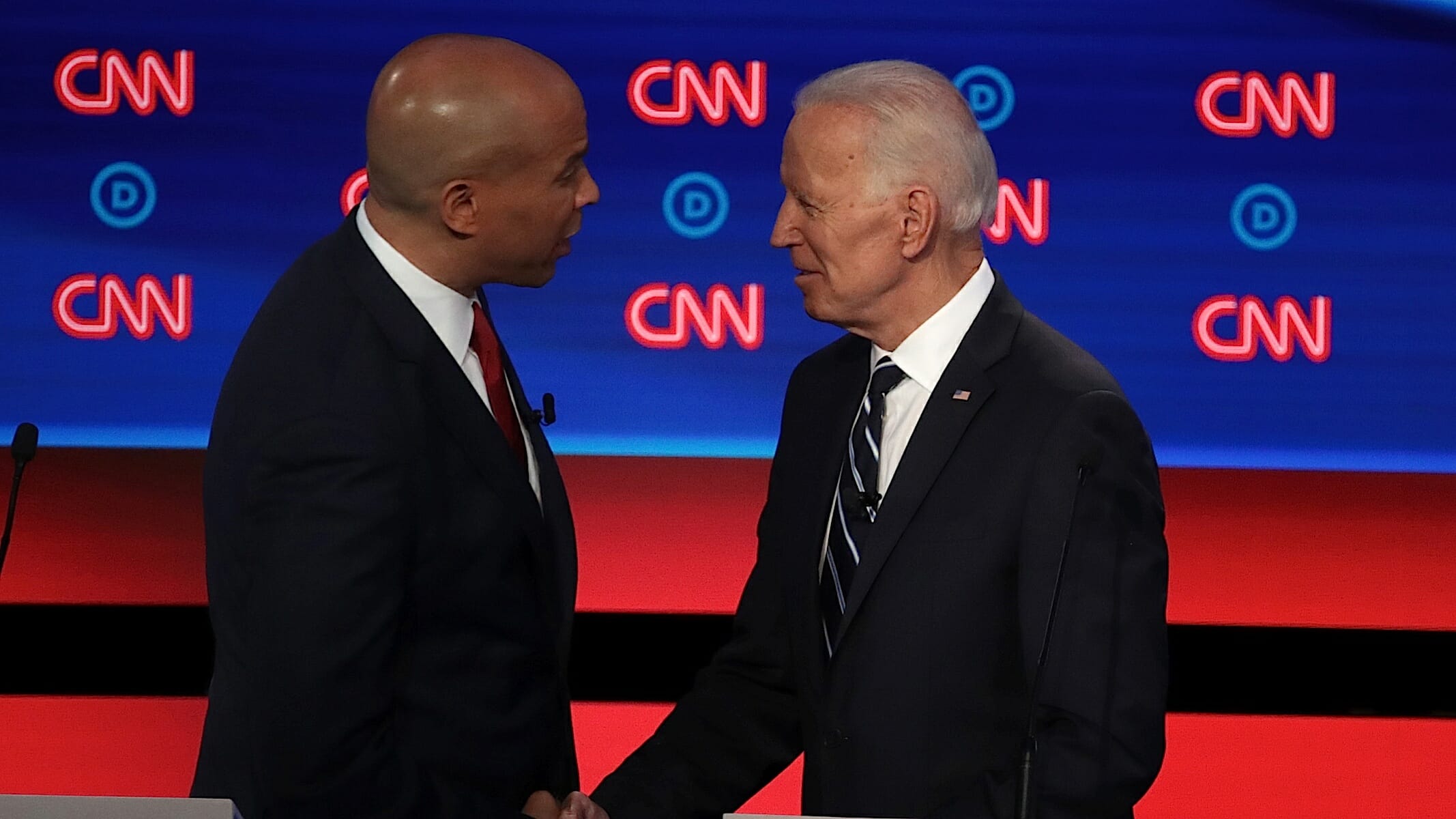It’s Time To Accept That Debates Might Not Matter
Photo by Scott Olson/Getty
A new poll from Morning Consult and Politico shows that of 316 Democratic respondents who actually watched the debate, 99 of them, or 31%, thought Elizabeth Warren performed better than her 19 opponents. Bernie Sanders was next at 18%, and Joe Biden came in third at 14%.
Ignoring the stupefying fact that anyone thought Biden’s performance was good (when I listened to the pundits on cable news defending him on Wednesday night, I thought I’d been transported to an alternate universe), let’s examine what exactly these numbers mean. First, the very same indicates that 73% of respondents think debates are “very” or “somewhat” important in determining which candidate they’ll support. Great news for Warren, right?
Wrong. Because the next question we have to ask is, how many actually watched? Each night, only about a third of those surveyed said they tuned in. So right there, we have a contradiction—an overwhelming majority call them important, and an overwhelming majority also don’t watch.
Hmmm.
Let’s look at the overall Democratic primary polls, starting with Politico/Morning Consult. The day of the first debate, before it actually aired, here were the rankings:
1. Biden – 33%
2. Sanders – 18%
3. Warren – 14%
By Friday, a couple days after the debates, we had new results:
1. Biden – 32%
2. Sanders – 18%
3. Warren – 15%
-

-

-

-

-

-

-

-

-

-

-

-

-

-

-

-

-

-

-

-

-

-

-

-

-

-

-

-

-

-

-

-

-

-

-

-

-

-

-

-








































